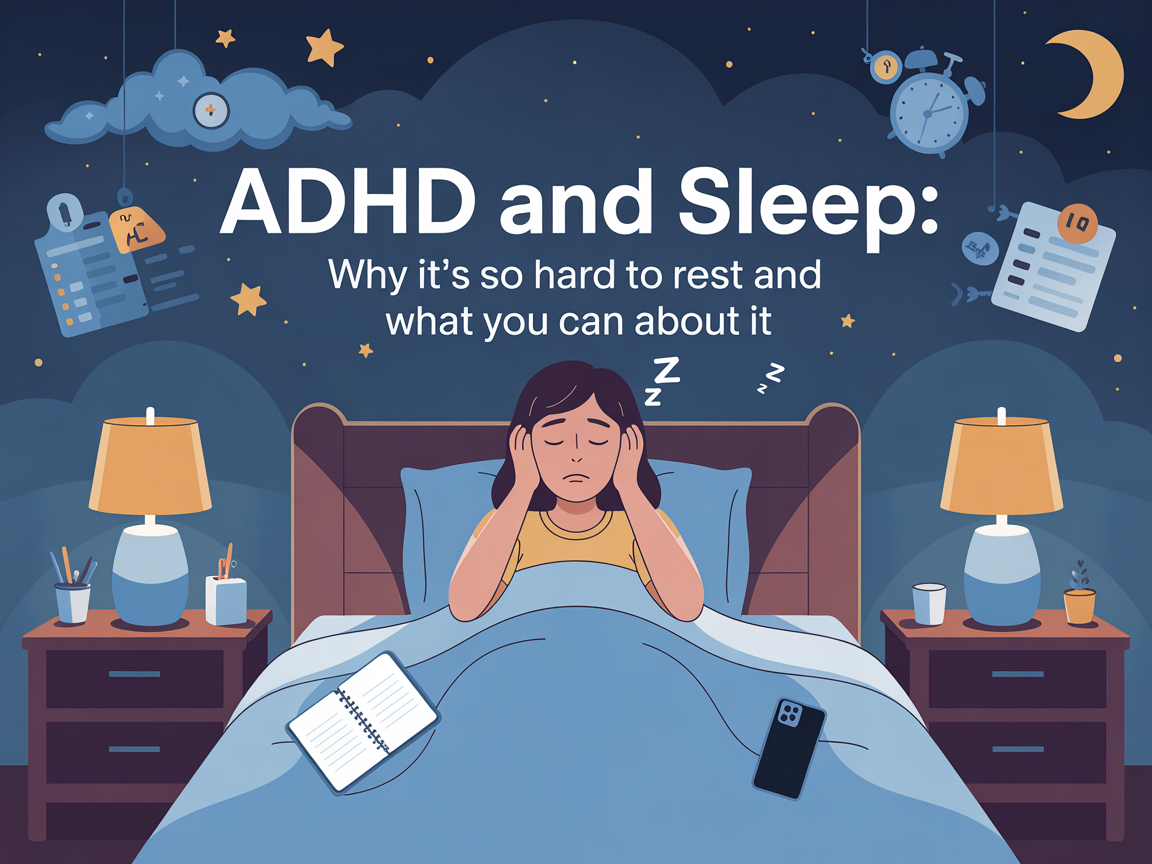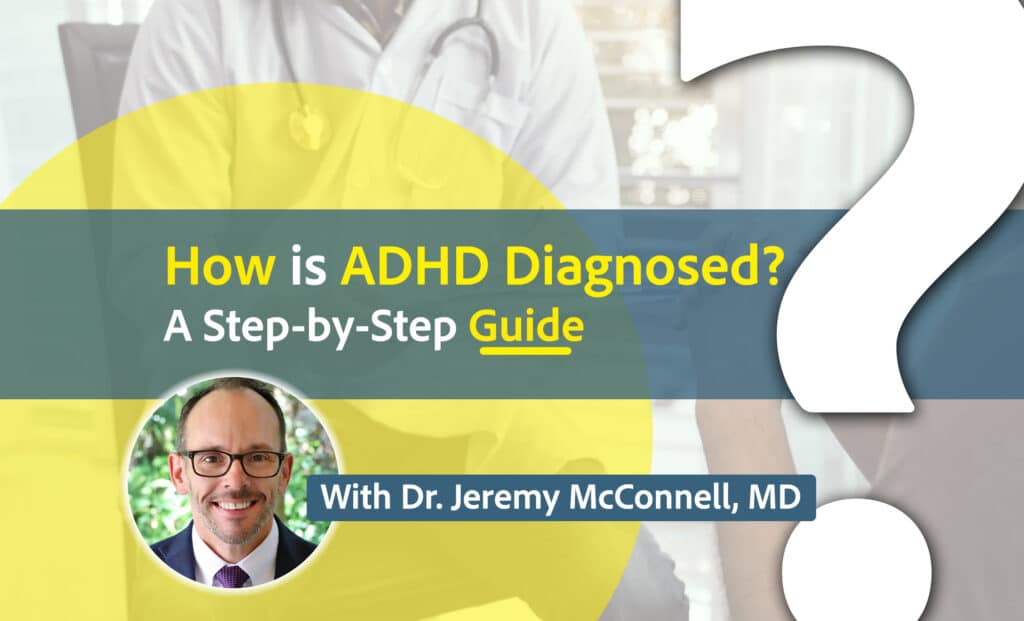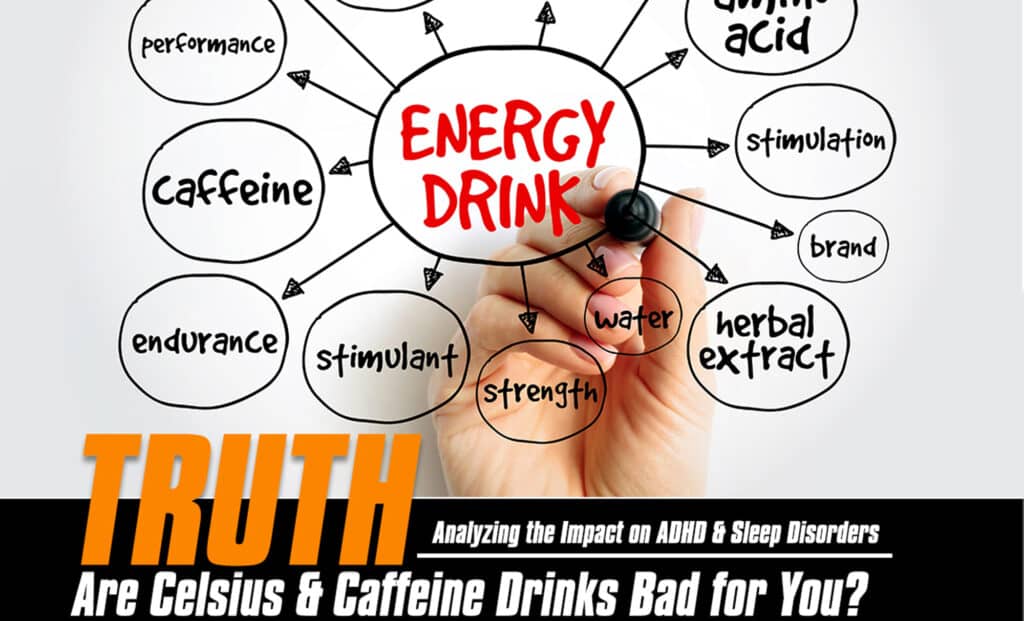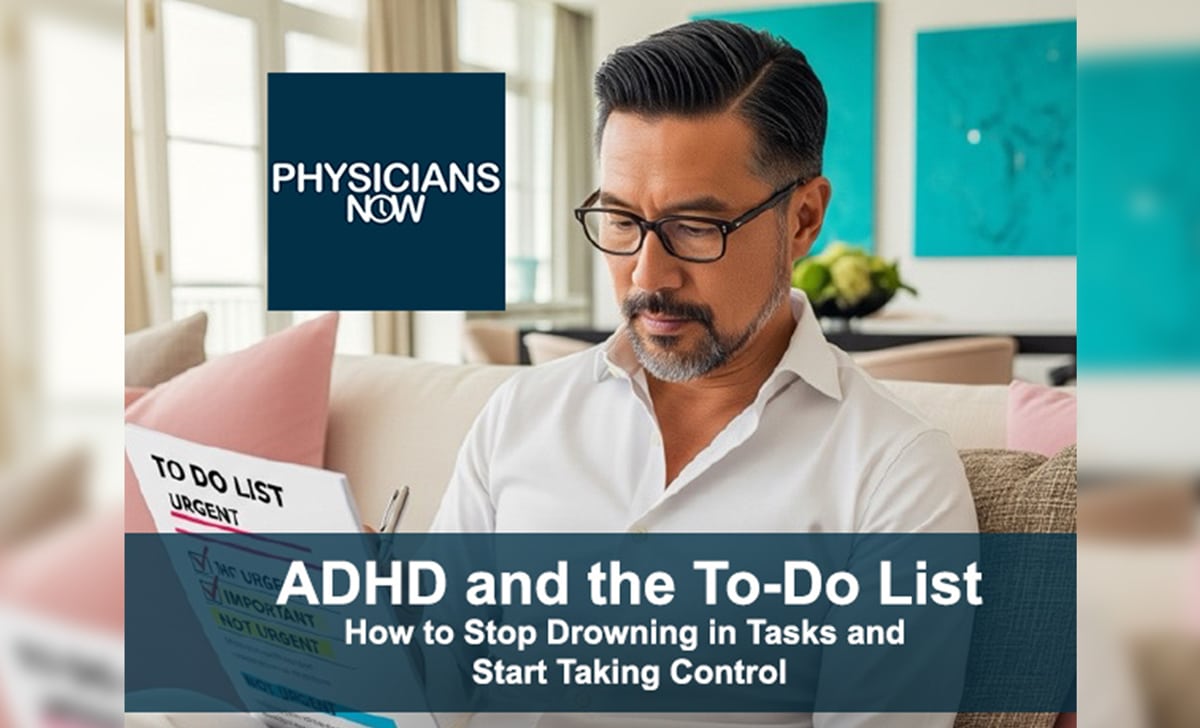
If you have ADHD, chances are you’ve struggled with sleep at some point. You’re not alone—research shows that 50–75% of people with ADHD experience chronic sleep problems. But here’s the frustrating part: good sleep is one of the most powerful tools for improving focus, emotional regulation, and daily functioning.
So why is it so hard for ADHD brains to rest? And more importantly—what can you do about it?
Why Sleep Is Different With ADHD
ADHD affects the brain systems that control attention, motivation, and—you guessed it—sleep regulation. This can create challenges like:
- Delayed sleep onset: Many people with ADHD describe “night owl syndrome”—they simply can’t fall asleep at a “normal” time, even when they’re tired.
- Restless thinking: Racing thoughts or mental hyperactivity make it hard to wind down.
- Irregular sleep schedules: Difficulty sticking to routines often leads to inconsistent bed and wake times.
- Sensitivity to stimulation: Noise, light, and even small discomforts can be more disruptive for ADHD brains.
To make matters worse, poor sleep worsens ADHD symptoms—leading to more distractibility, impulsivity, and emotional dysregulation during the day.
Do ADHD Medications Affect Sleep?
They can—but they don’t have to.
Stimulant medications like Adderall, Vyvanse, or Ritalin are powerful tools for managing ADHD, but because they boost alertness, taking them too late in the day can make it harder to fall asleep.
If you notice trouble sleeping after starting or adjusting medication:
- Take stimulants earlier in the day.
- Ask your provider if an extended-release vs. short-acting formulation is better for you.
- Consider whether a non-stimulant medication (like Strattera or Intuniv) is a good alternative.
Don’t stop medication on your own—talk to your doctor about adjustments.
The ADHD-Sleep Cycle: A Vicious Loop
Here’s the kicker: lack of sleep makes ADHD symptoms worse. And untreated ADHD makes it harder to get good sleep. It’s a cycle that feeds itself:
- ADHD makes it hard to wind down at night.
- You get less sleep—or lower-quality sleep.
- The next day, ADHD symptoms feel stronger (foggy thinking, poor emotional control).
- You rely on caffeine or naps, which further disrupt nighttime sleep.
Breaking this cycle takes intention—and usually, multiple strategies combined.
Practical Sleep Solutions for ADHD
1. Create a Wind-Down Routine
Give your brain a “signal” that it’s time to rest:
- Dim lights an hour before bed.
- Avoid screens (or use blue-light filters).
- Use relaxing cues like white noise, soft music, or a weighted blanket.
2. Set Consistent Bed & Wake Times
ADHD brains thrive on external structure. Pick a bedtime and wake-up time—and stick to them, even on weekends.
3. Move Your Body During the Day
Regular exercise improves sleep quality and helps burn off restlessness. Even a short evening walk can make a difference.
4. Limit Stimulants & Late Meals
Caffeine after mid-afternoon? Skip it. Large, heavy meals before bed? They can disrupt sleep, too.
5. Use “Brain Dump” Techniques
If racing thoughts keep you awake, keep a bedside notebook. Write down your worries, to-dos, or random ideas so your brain can let go of them for the night.
6. Consider Professional Help
Sometimes, insomnia is linked to anxiety, depression, or another sleep disorder (like sleep apnea). If nothing helps, talk to a sleep specialist.
When to Talk to Your Provider
If your sleep issues are severe or lasting more than a few weeks—especially if they started after a medication change—bring it up at your next appointment. Your provider may:
- Adjust your medication timing or type.
- Refer you for a sleep study to rule out conditions like sleep apnea.
- Recommend behavioral therapy for insomnia (CBT-I), which is highly effective for people with ADHD.
- Change medication or dosing.
The Takeaway
Sleep and ADHD are deeply connected. Poor sleep makes ADHD symptoms worse, and ADHD makes good sleep harder to achieve. But the right strategies—routines, lifestyle adjustments, and sometimes medication changes—can help you finally get the rest you need.
Better sleep isn’t just about feeling less tired. It’s about improving focus, emotional stability, and overall quality of life.
Need help managing ADHD and sleep issues?
At Physicians Now, we specialize in diagnosing and treating Adult ADHD through expert-level care by top medical doctors—not nurse practitioners. With a 95% treatment success rate and concierge-level support, our patients benefit from:
- Live video visits with the same doctor each time
- Personalized treatment plans
- Flexible scheduling and no monthly subscriptions
- The ability to use your regular pharmacy
Click here to book your appointment now and experience the Physicians Now difference.



